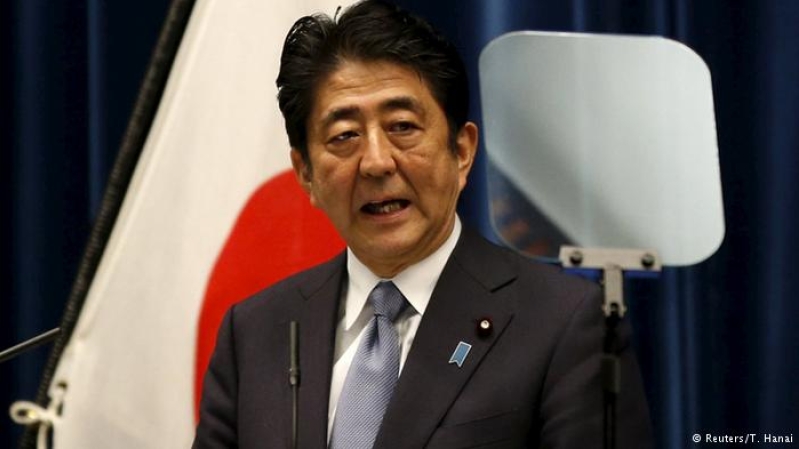
Japanese Prime Minister Shinzo Abe makes the historical visit to Pearl Harbor on Tuesday to pay respects to the victims of the attack on the naval base that sparked World War II.
Abe was accompanied by US president Barack Obama for this landmark visit for both countries, which ironically were in conflict 75 years ago when Japan launched a massive air strike on the Pearl Harbor that killed over 2000 US military personnel. But as expected, the prime minister did not issue an apology for the attack.
According to BBC, the visit was made to pay tribute to the lives lost in the attack and the prime minister offered "sincere and everlasting condolences" to all the victims. He also called the joint visit with Obama an "alliance of hope" between the two countries and shall mark a renewed alliance.
"To the souls of the US servicemen who lie aboard the USS Arizona, to the American people, and all people around the world, I pledge that unwavering vow," Prime Minister Abe said. He also commended the US government for its efforts to re-establish a relation with Japan after the atomic bomb attack on Nagasaki and Hiroshima in 1945.
Prime Minister Abe also pledged during the tribute that Japan would not wage war again and would do its best to promote peace all over the world. "We must never repeat the horrors of war again. This is the solemn vow we, the people of Japan, have taken," Abe said.
"It is my wish that our Japanese children, and President Obama, your American children, and indeed their children and grandchildren, and people all around the world, will continue to remember Pearl Harbor as the symbol of reconciliation. We will spare no efforts to continue our endeavors to make that wish a reality. Together with President Obama, I hereby make my steadfast pledge," Abe adds.
President Obama, on the other hand, said that the US welcomes Japan's efforts "in the spirit of friendship, in the manner Japan has always welcomed me." As he laid the wreath to pay tribute to the men lost during the attack, he acknowledged that the loss as on "waters that still weep."
"That morning the ranks on those men's shoulders reflected them less than the courage in their hearts," he said. Obama also became the first president to mark another symbolic event preceded by a visit to Hiroshima seven months ago to pay respects to those who died in the atomic bomb attack that led to the surrender of Japan and ended the war.






